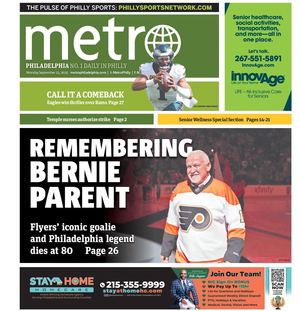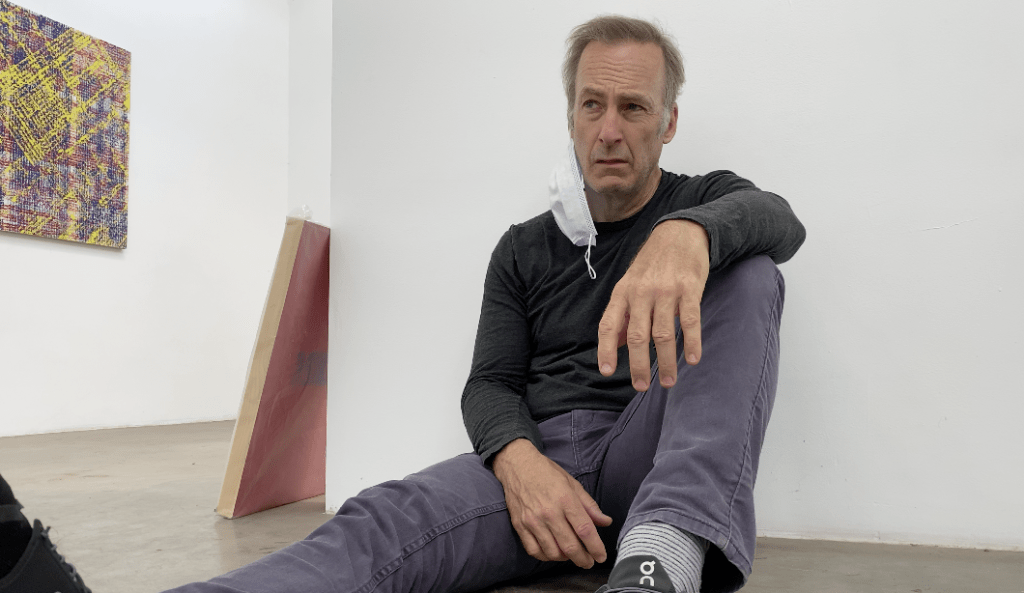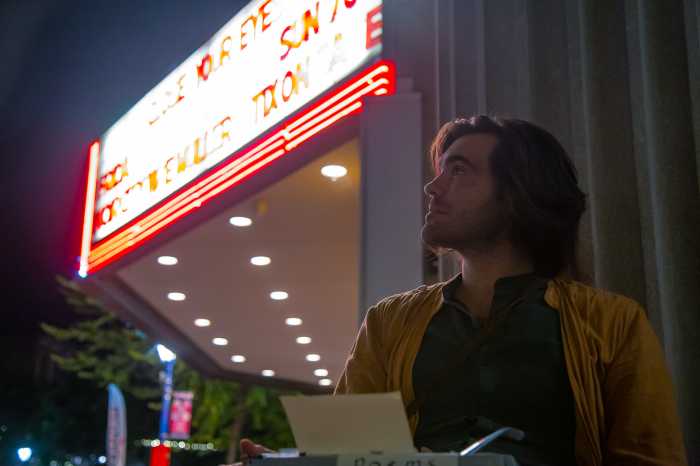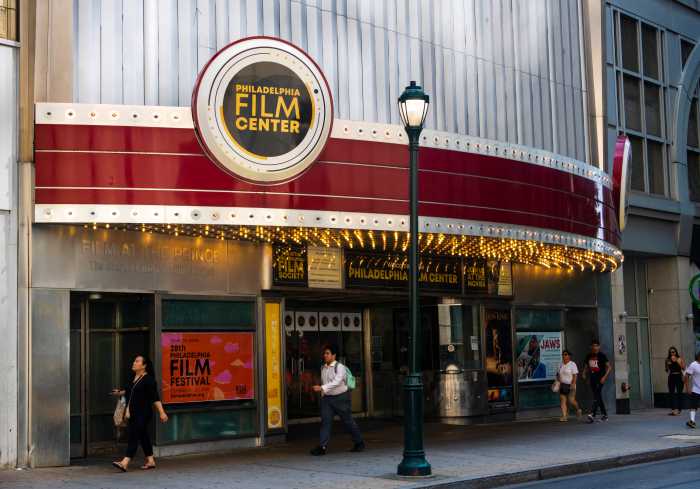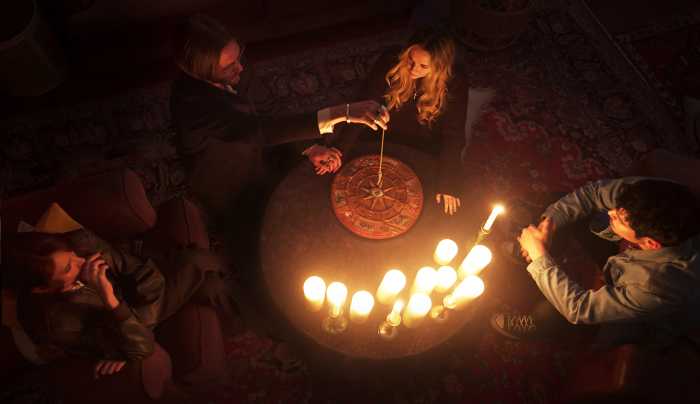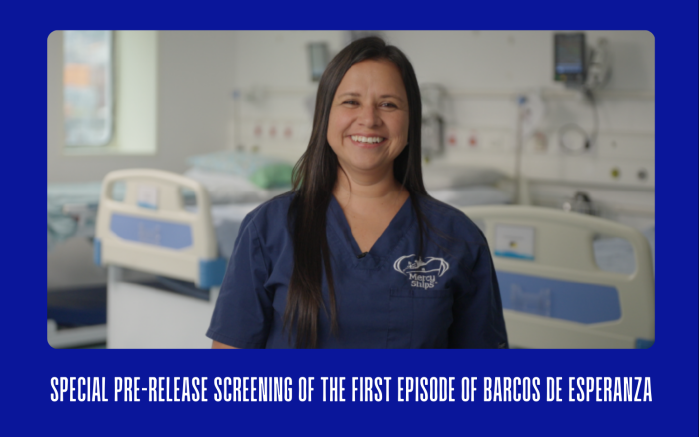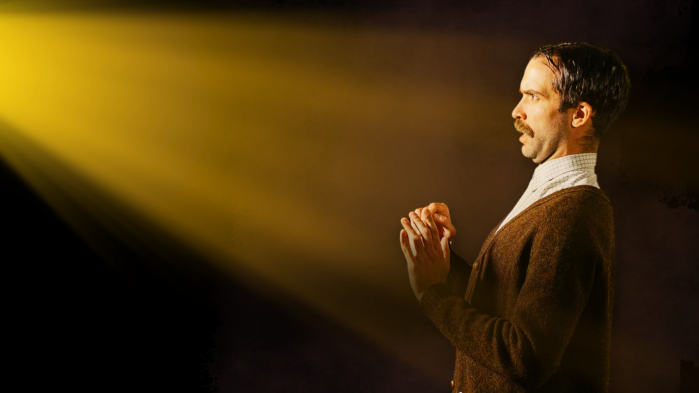Even with a few years passed, most people can remember the first weeks of lockdown in March 2020. Everyone experienced the pandemic differently, but centrally, relationships were commonly at the core of what helped people navigate the ordeal.
In ‘Life Upside Down,’ we see filmmaker Cecilia Miniucchi’s perspective and it’s quite poignant for its time—mainly because it was filmed during the height of COVID-19.
Utilizing different filming technologies, ‘Life Upside Down’ was written, edited, filmed and rehearsed while everyone was in isolation. It was a creative challenge for Miniucchi and the cast (Bob Odenkirk, Radha Mitchell, Danny Huston, and Rosie Fellner), with each member of the film having to think outside the box to get this story done.
To dive a little deeper into the plot—which centers on three couples each with their own problems and circumstances ranging from cheating to work to family—Miniucchi sat down to discuss how they were able to pull off ‘Life Upside Down,’ and if she would ever want to try something like this again.
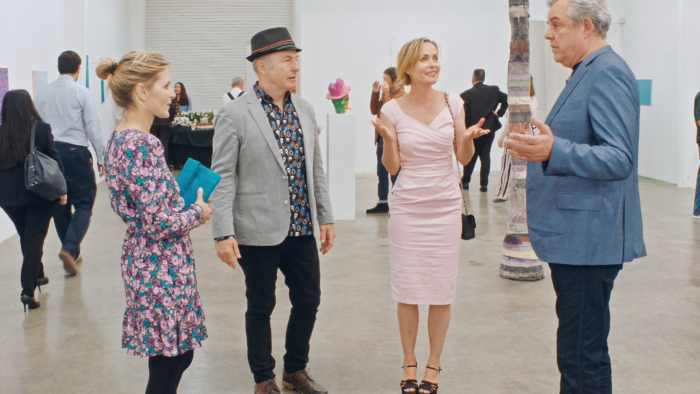
What were the beginning phases like of trying to figure out how to direct a film with everyone in isolation?
I have two great producers. One is Carl Berg, he actually physically came up with a device that we would use to make this film possible. The other producer, Jeffrey Coulter, he came up with the idea of how to do this video shooting that we would show to the actors—so the combination of these two things made it possible. Every morning we would drop this device at each cast member’s home, and we would have one of the producers or a young associate producer go to the home to set it up and explain. Then I would be directing them through my computer screens here, where I’m at now, in my office.
And sometimes it was with multiple screens if I had two different scenes to record and shoot at the same time with two different actors in two different locations—because of course, no one was ever in the same place. So we did it with me directing through monitors at home through this device where there were microphones, iPads, and iPhones. It was challenging, but fun and a great experiment.
Was there any sort of rehearsal process? And how long from start to finish did the film take?
We didn’t do any table reading, but we did rehearse some scenes. I wrote the script in a couple of weeks, we talked and rehearsed for about a week, and then we started shooting. And the shooting, I think was about 20 days. So maybe a little longer than three weeks, maybe four weeks.
It’s a film based on relationships. How did you craft that story to play into COVID?
The film has the very beginning of lockdown where nobody knew what the heck was going on. And that dictated a bit with these characters and these relationships because it was about disruption. It could have been a hurricane, it could have been anything else, but it’s what happens when your lives get turned upside down because of an exterior force of sorts. So, if you want to be with somebody and you can’t be with that person, that’s what is going to move you the most. Just like with Radha Mitchell’s and Bob Odenkirk’s characters.
Or, if you are living with somebody that you love, you really get the time to know this person—do you really know this person? Are you learning new things about this person and yourself ultimately? So I just created these three main characters [from that.]
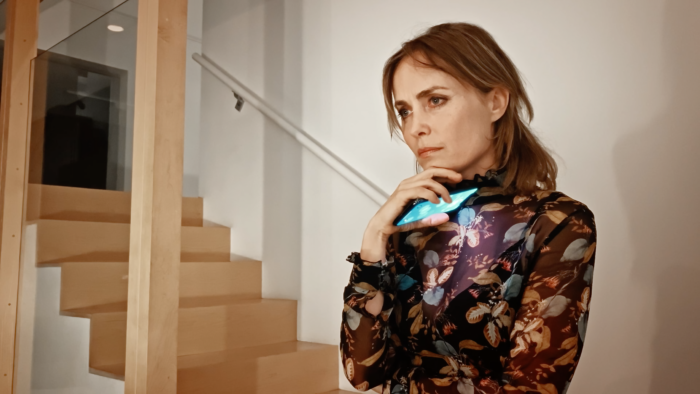
You mentioned before some of the challenges that arose with filming. What were some of them? And were there any benefits in filming remotely?
Well, the challenges were often the moment you were outside of the house, the wifi reception was a little weaker. I would at times lose the sight of what I was doing, so I had to rely on telephones and just the sound. The image sometimes would break up because it was too far from the wifi reception, even when we were all inside, it was still at times a little difficult because you had to go through so many devices in order to see things. And not being there physically was a bit of a [challenge.]
But on the other hand, it was fantastic to find out that you can make a movie remotely—we did not make a movie through Zoom, we did it as if we were shooting in real life without being there. I think I learned a lot also through this process, we certainly moved very fast. So, you make decisions even faster than normal because there aren’t many alternatives and there isn’t that much time.
Would you ever explore this format again for a film?
Why not? I’ve even thought about pushing it further… but I’m not going to give it away yet until I get it all together. But yes, absolutely. I’m always open to new things and new techniques. Ultimately it’s a story you tell, but the story can be modified or influenced by the way you’re making all sorts of films.
You’ve worked with so many amazing directors throughout your career—what have you taken from them that benefitted working on ‘Life Upside Down’ directly?
I must have taken so much from all of these wonderful people I’ve worked with without knowing precisely what…It’s just a gift that you work with, it’s within you, and you don’t really pinpoint recognizing which is which. But I think together, it’s a sense of a possibility. You know, this can be done….They do it, so I can probably do it. When you’re young, that’s what you look for— you look for role models that can show you the way and set up an example to give you hope and strength because as you know, this job is not given to you easily. You have to fight all the time, it’s nothing but obstacles.
I learned from Lena (Dunham) that you need to be kind most of the time if you can. And [to have] endless strength and capacity to be heard. Being a woman, especially at her time, you need to be twice as assertive, twice as strong, twice as good twice in order to just survive as a filmmaker. The Taviani brothers (Vittorio and Franco Brogi) were interesting because there were two of them directing at the same time. I was interested to see how they were completely in harmony as if they were only one person.
But just admiring talent is learning to grow with it and learning from it. It’s just such a privilege to be exposed, you know?
Life Upside Down will be released in theaters and On Demand Jan. 27.
